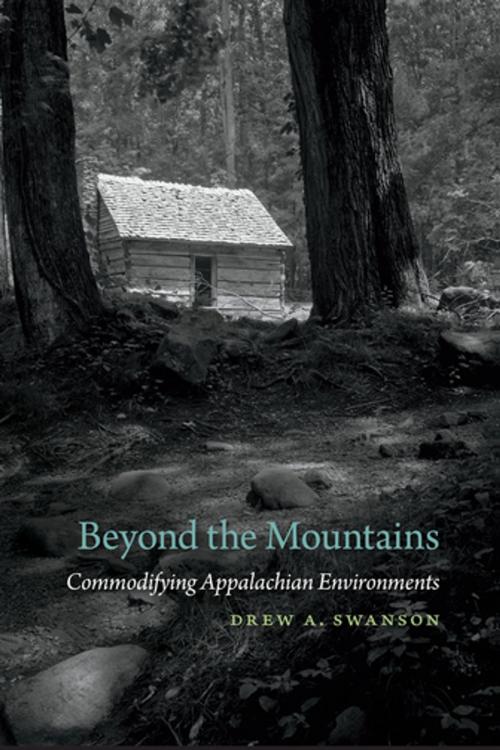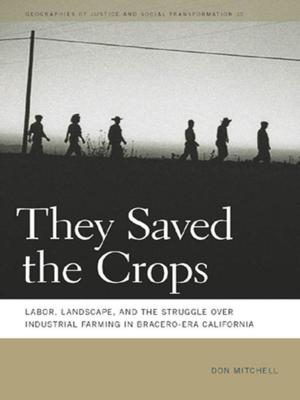Beyond the Mountains
Commodifying Appalachian Environments
Nonfiction, Science & Nature, Nature, Environment, Mountains, Social & Cultural Studies, Social Science, Sociology, Rural, History, Americas, United States| Author: | Drew A. Swanson, James Giesen | ISBN: | 9780820353975 |
| Publisher: | University of Georgia Press | Publication: | November 15, 2018 |
| Imprint: | University of Georgia Press | Language: | English |
| Author: | Drew A. Swanson, James Giesen |
| ISBN: | 9780820353975 |
| Publisher: | University of Georgia Press |
| Publication: | November 15, 2018 |
| Imprint: | University of Georgia Press |
| Language: | English |
Beyond the Mountains explores the ways in which Appalachia often served as a laboratory for the exploration and practice of American conceptions of nature. The region operated alternately as frontier, wilderness, rural hinterland, region of subsistence agriculture, bastion of yeoman farmers, and place to experiment with modernization. In these various takes on the southern mountains, scattered across time and space, both mountain residents and outsiders consistently believed that the region’s environment made Appalachia distinctive, for better or worse.
With chapters dedicated to microhistories focused on particular commodities, Drew A. Swanson builds upon recent Appalachian studies scholarship, emphasizing the diversity of a region so long considered a homogenous backwater. While Appalachia has a recognizable and real coherence rooted in folkways, agriculture, and politics (among other things), it is also a region of varied environments, people, and histories. These discrete stories are, however, linked through the power of conceptualizing nature and work together to reveal the ways in which ideas and uses of nature often created a sense of identity in Appalachia. Delving into the environmental history of the region reveals that Appalachian environments, rather than separating the mountains from the broader world, often served to connect the region to outside places.
Beyond the Mountains explores the ways in which Appalachia often served as a laboratory for the exploration and practice of American conceptions of nature. The region operated alternately as frontier, wilderness, rural hinterland, region of subsistence agriculture, bastion of yeoman farmers, and place to experiment with modernization. In these various takes on the southern mountains, scattered across time and space, both mountain residents and outsiders consistently believed that the region’s environment made Appalachia distinctive, for better or worse.
With chapters dedicated to microhistories focused on particular commodities, Drew A. Swanson builds upon recent Appalachian studies scholarship, emphasizing the diversity of a region so long considered a homogenous backwater. While Appalachia has a recognizable and real coherence rooted in folkways, agriculture, and politics (among other things), it is also a region of varied environments, people, and histories. These discrete stories are, however, linked through the power of conceptualizing nature and work together to reveal the ways in which ideas and uses of nature often created a sense of identity in Appalachia. Delving into the environmental history of the region reveals that Appalachian environments, rather than separating the mountains from the broader world, often served to connect the region to outside places.















